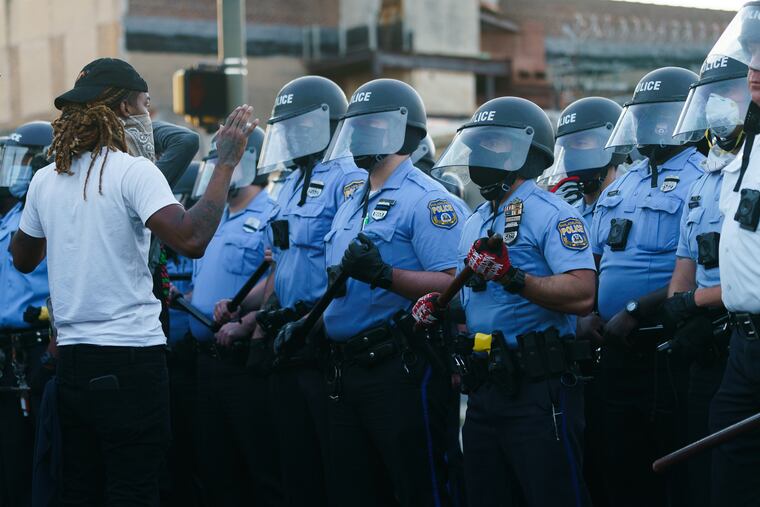Ban police profanity to improve community relations | Opinion
It would cost the city $0 to implement this policy change.

This month saw the conclusion of the trial of former Minneapolis Police Officer Derek Chauvin. The jury returned its verdict: guilty on all counts. Social justice advocates across the nation have dubbed the result bittersweet, celebrating the carriage of justice but stressing the importance of continued efforts to improve police-community relations. This call to action rings especially loudly in the wake of the recent police shootings of 13-year-old Adam Toledo in Chicago and 16-year-old Ma’Khia Bryant in Columbus, Ohio. The road to reform ahead is long, but we should all ask ourselves what are the first steps to take and what can we do today to try to keep our children out of police crosshairs.
One thing police could do starting today: Quit f---ing cursing.
Police body camera footage has brought policing into a new light. Special Prosecutor in the Trial of Derek Chauvin, Steve Schleicher, reminded jurors in his closing remarks of Mr. Floyd’s gentleness, then pointed out that officers drew their weapons and told Mr. Floyd to put his “f---ing” hands up. The same command was given to Adam Toledo, just seconds before he turned toward the officer with hands raised and got shot* in exchange. Profanity-laden commands are for goons robbing a bank, not for police sworn to serve and protect.
The Philadelphia Police Department publishes its directives on its website and makes no express guidance on the use of profanity. Directive 10 is the department’s policy on use of force. The directive stresses that officers should always prioritize de-escalation and first issue “verbal commands.” In the event of noncompliance, officers are to increase the use of force in a graduated fashion. Simply put, verbal commands shouldn’t use profanity if they are meant to de-escalate. I’m not a police officer, but I’m comfortable saying that there are relatively few situations in which launching a profanity-filled tirade will successfully de-escalate conflict. The Philadelphia Police Department should adopt a written policy to this effect.
The Cato Institute, a public policy think tank, reported strong bipartisan support for a prohibition on the coarse language for police in a 2016 survey. Further, research from the American Psychological Association shows the dramatic effect of police profanity on public perception. Participants in a mock-arrest scenario were more likely to rate the actions of police as “excessive” when profanity was used. The Philadelphia Police Department commits itself to be a nationwide leader in best practices, and without question, a prohibition on police profanity would improve police-community interactions every day on the street.
Make no mistake, this proposal to ban police profanity only begins to chip away at the long-standing structures of our policing institutions. With the path forward burdened by a need for reckoning, reconciliation, and introspection, a few well-supported and concrete steps may be in order. After all, with ongoing and often discordant public discourse surrounding police funding, this proposal can be championed for its ease of implementation. It would cost the taxpayers and the department $0.
Michael Fuentes is a third-year law student with a special interest in criminal justice and constitutional law.
*Editor’s note: This piece has been updated to reflect that reports indicate the officer shot Toledo once, not four times as previously stated.